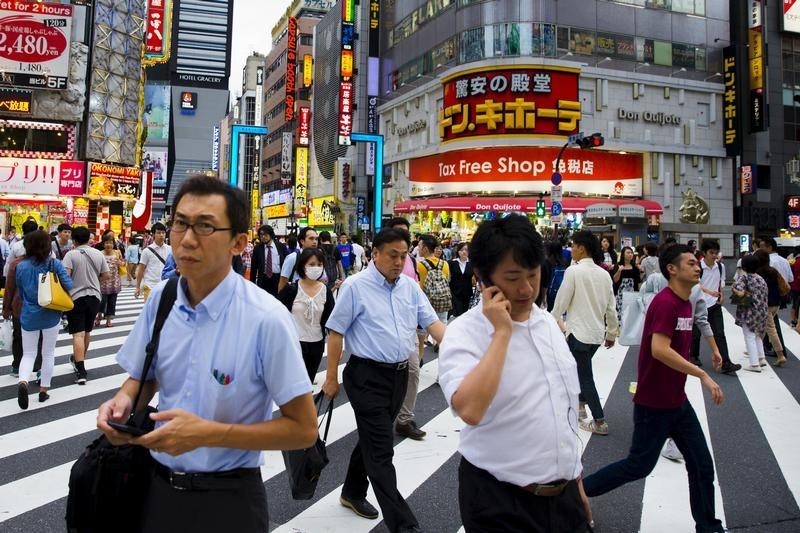By Ambar Warrick
Investing.com -- Japan’s core consumer price index rose as expected to a 41-year high in December, data showed on Friday, signaling more pressure on the economy from rising prices and on the Bank of Japan to potentially tighten monetary policy.
National Core CPI inflation, which gauges price changes in all items excluding fresh food, rose at an annualized 4% in December from 3.7% in November, data from the Statistics Bureau showed. The index was at its highest level since December 1981.
Including fresh food, CPI inflation also rose 4% in December from 3.8% in the prior month.
Gas and utilities continued to be the biggest contributor to rising inflation, with gas prices jumping over 23% during the month, while electricity costs rose 21%. The country was hit hard by disruptions in the commodity market following Russia’s invasion of Ukraine in early-2022, and has faced a rising energy bill ever since.
Food prices also rose 7%, given that Japan imports a bulk of its requirements. The country’s heavy dependence on imports was the biggest contributor to high inflation, as a deep depreciation in the yen ramped up import costs.
Rising raw material costs in turn were passed on to customers by local businesses. Data released earlier this week showed producer price index inflation also surged to a 41-year high in December.
The high inflation reading is now expected to spur increased speculation over a potential shift in the Bank of Japan’s ultra-loose monetary policy. While the central bank stood pat on its policy during a meeting this week, it had in December unexpectedly widened the range within which it allows yields on benchmark government bonds to fluctuate.
The yen was flat on Friday, but had reversed a bulk of recent losses this week amid speculation that the BOJ could further widen that range this year. Given the sharp appreciation in the yen and bond yields after the move, analysts say that another such widening is likely to act as an interest rate hike.
Still, the BOJ has given no indication that it plans to raise interest rates from ultra-low levels in the near term, which is expected to limit gains in the yen.
The central bank also forecast that inflation will trend higher towards mid-2023 before easing somewhat by the year-end.
